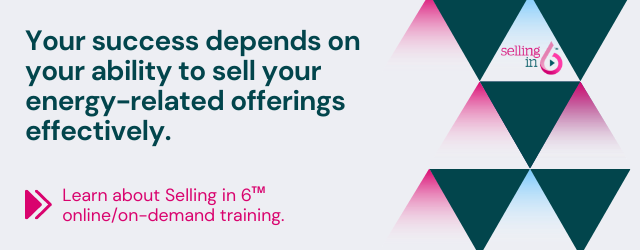When you’re making an investment, you might be advised to wait. Likewise, you might hear from your prospects that waiting is a prudent move regarding energy efficiency. That isn’t always the case.

Several years ago, a fellow Wharton alum shared a story with me. He was selling utility-scale solar projects and his deal flow nearly halted because of a rumor spreading through his segment: the cost of silicon was going to fall by 50% within the next five years. Prospects were telling him, “Why would I want to do this project when I could wait until it was cheaper?”
He thought about it for a while then realized this argument didn’t make any mathematical sense. “Only 20% of the project was related to the cost of silicon,” he said. “If you halve 20% of the project, that means you’d only be saving 10% after the five years.” Not only that, he noted that the rest of the project cost would be subject to compounded inflation, as well as everything else. Moreover, waiting would also cost you five years’ worth of solar production and introduce the risk of receiving lower rebates or tax benefits.
The only way to combat this was to put these numbers down on paper and make it clear to his prospects. He told them, “It’s simple. The cost of delay will sideline your progress, and on top of that you’ll be losing money.” Once they realized this, it was a major sanity check. Why would you refrain from making these improvements over such a small amount of potential raw material cost savings?
The economics of solar have changed tremendously since I first heard that story. However, this approach to overcoming the misplaced prudence of waiting is still quite valid. I use the same philosophy when I deal with prospects who want to wait. Perhaps they that feel prices are on their way down, that technology is improving, or that it’s wasteful to replace equipment that’s still running (even if it is dreadfully inefficient). When a prospect uses those objections, they are likely neglecting the big picture. If that’s the case, make sure to bring it back into focus.







